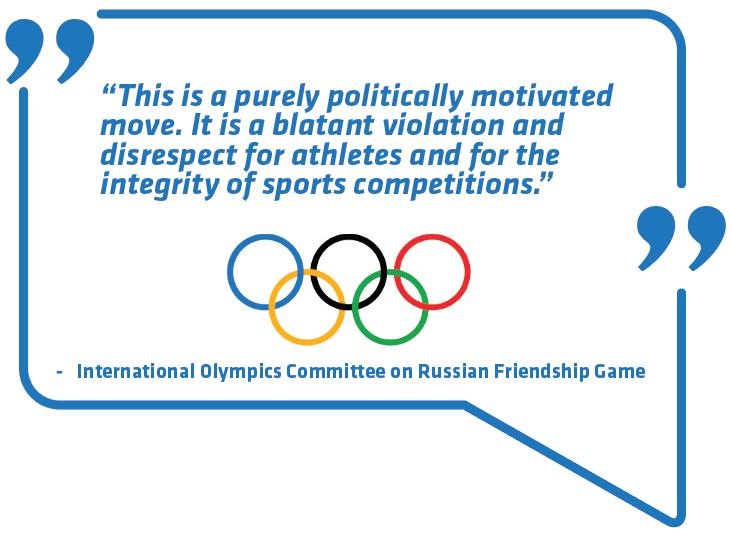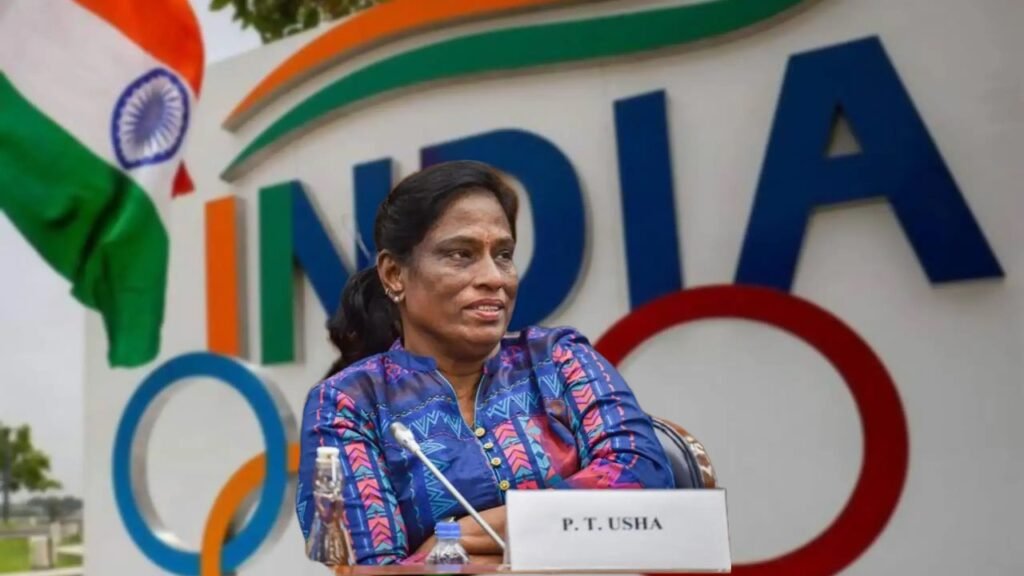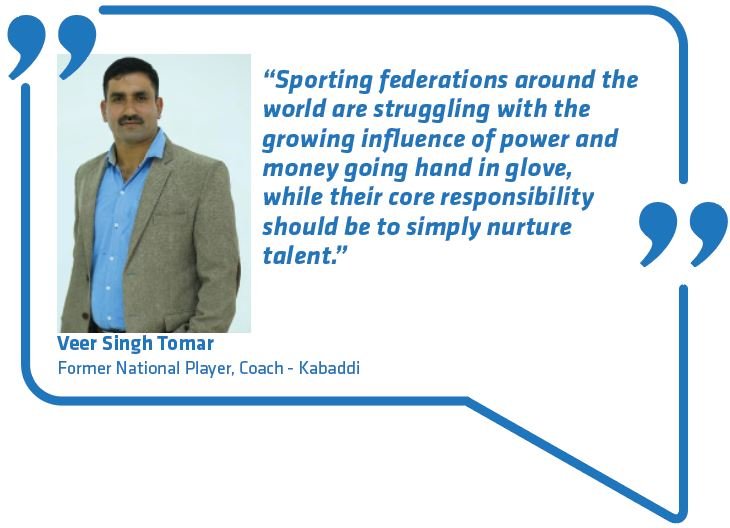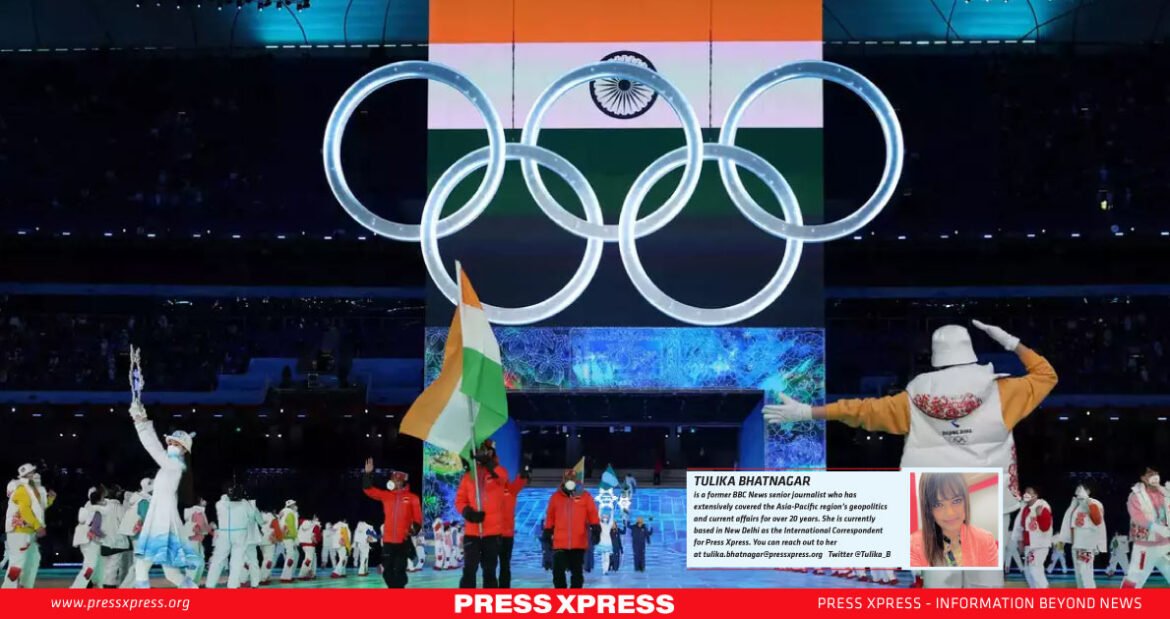Sports and politics do not mix. But it is becoming increasingly difficult to keep them apart.
As the world prepares for the greatest sporting event – the Summer Olympics 2024, to be held from 26 July to 11 August in Paris – the spotlight has fallen again on the increasing politicisation of sports.
Two recent developments have particularly highlighted how political controversies are increasingly casting a shadow on sporting events around the world.
You Can Also Read: WHY SPORTSWEAR STILL LAGS ON SUSTAINABILITY
To begin with, the International Olympics Committee (IOC) has recently warned member countries against allowing political interests to influence decisions about athletes participating in sporting competitions. This comes as Russia prepares to hold an Olympic-parallel ‘Friendship Games’ complete with summer and winter editions, after being largely frozen out from the Olympics, owing to the Ukraine war.
Russia is also starting its own IOC-like sporting bloc, the ‘International Friendship Association’ (IFA).
“This is a purely politically motivated move,” the IOC said in an official statement, urging countries around the world to reject the Russian Friendship Games.
“It is a blatant violation and disrespect for athletes and for the integrity of sports competitions,” it said.
The IOC has allowed “neutral status” to 14 athletes from Russia and 11 from its ally Belarus, to compete in the Olympics as neutral athletes, without flags or anthems and emblems. They cannot participate in the opening or closing ceremonies as well. Many athletes have declined.

Read the full official statement here: Declaration by the IOC against the politicisation of sport
In addition to this development, the IOC also said that “more and more governments are restricting their athletes” from sporting events, over political reasons. It said that at a session held in Mumbai in October last year, expressing concern that politicisation of sports was becoming a huge concern in both domestic and international events.
The Olympics governing body has urged all Olympics bidders to adhere to the ethics code of “political neutrality”. This comes as India has again expressed strong commitment in its bid to host the 2036 Olympic Games – along with other potential bidders, Poland and Indonesia.
But the question then arises: Should the future of sport be intertwined with politics?
Sports as tool for politics, social justice
Experts say sports has the potential to project a nation’s soft power. In this regard, it is likely that top sporting events in the future will increasingly serve as a platform for exercising this power.
But critics also point out that social causes can also be used when anti-government protests find their way into global sporting competitions.
For example, the football Fifa World Cup in Qatar held in 2022 came under the scanner as host country Qatar was accused of violations of labour rights and of sexual minorities.
In the same World Cup, the Iranian football team refused to sing their national anthem before their match against England, in protest against the custodial death of Malisa Amini arrested for not wearing the hijab in conformity with Iranian law.
“Even in the 2022, the Beijing Winter Olympics faced diplomatic boycott by the US and some other nations over China’s alleged human rights violations in Xinjiang,” said Veer Singh Tomar, former national-level athlete and currently coach of the Kabaddi sport.
Speaking to PressXpress, Tomar said, “Unfortunately, political influence has become too ingrained in sports culture across the world. Every effort should be made to keep sports and politics apart.”
Tomar was referring to another recent development about India being banned from all global tournaments of Kabaddi. Last week, the International Kabaddi Federation (IKF) officially informed the Indian Olympic Association (IOA) President, PT Usha, of this decision.

“It is a big blow to India, the reigning world champions of Kabaddi,” Tomar explained, adding that the IKF said it took this decision because of internal politics damaging the national governing body AKFI’s (Amateur Kabaddi Federation of India) administration, ethics, and selection of athletes for various sporting events.
“Sporting federations around the world are struggling with the growing influence of power and money going hand in glove, while their core responsibility should be to simply nurture talent,” Tomar told PressXpress.

Meanwhile, IOA chief PT Usha didn’t respond to PressXpress’s questions regarding the development, and its impact on India’s image on the global platform – especially as Prime Minister Narendra Modi continues to express strong interest in developing the country as a massive sporting destination of the future.
“Indians are not just sports lovers, but we also live it,” Modi had said at the opening ceremony of the IOC session in Mumbai last year.
It is India’s “age-old dream”, PM Modi had said, adding that we will “leave no stone unturned” in putting India on the world atlas of sporting destinations.
But will “this dream of 140 crore (1.4 billion) Indians”, as described by PM Modi, get realized or will it fall into the vicious cycle of lackadaisical sporting governance? That is something observers are closely watching as politics gains more influence in sports on both national and international levels.


